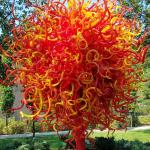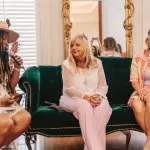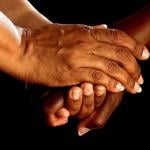 The biography of Jean Belke Elshtain, the conference’s fifth speaker:
The biography of Jean Belke Elshtain, the conference’s fifth speaker:
“Jean Elshtain is a political philosopher whose task has been to show the connections between our political and ethical convictions. She is the author of several books and scores of articles as well as a fellow of the American Academy of Arts and Sciences and chair of the Council on Civil Society. She has served on the Board of Trustees of the Institute for Advanced Study at Princeton University and is currently on the Board of Trustees of the National Humanities Center and on the Board of Directors of the National Endowment for Democracy. She has been a Phi Beta Kappa lecturer, is the recipient of nine honorary degrees, and received the 2002 Frank J. Goodnow Award, the American Political Science Association’s highest award for distinguished service to the profession.
In 2003, Professor Elshtain was the second holder of the Maguire Chair in Ethics at the Library of Congress. In 2006,  she was appointed by President George W. Bush to the Council of the National Endowment for the Humanities, and also delivered the prestigious Gifford Lectures at the University of Edinburgh, joining such previous Gifford Lecturers as William James, Hannah Arendt, Karl Barth, and Reinhold Niebuhr. The lectures are forthcoming under the title Sovereignties: God, State, and Self (2008).”
she was appointed by President George W. Bush to the Council of the National Endowment for the Humanities, and also delivered the prestigious Gifford Lectures at the University of Edinburgh, joining such previous Gifford Lecturers as William James, Hannah Arendt, Karl Barth, and Reinhold Niebuhr. The lectures are forthcoming under the title Sovereignties: God, State, and Self (2008).”
The following is a summation of Elshtain’s incisive, often poetic remarks (errors mine, gems hers) from “Why Selves Cannot Be Sovereign.”
Introduction
How do we make human beings moral agents?
On this question, Elshtain commended her book on sovereignty, the state, and the self. She wondered out loud how we can maintain the sovereign self, on the one hand, and chasten and tame this notion of self-sovereignty on the other.
Notion of self-sovereignty has been deeded to us by our history. Pridefulness and self-loss are opposite extremes. We don’t want to be trampled on, so we choose self-sovereignty.
We face a certain attitude today that sees only ignorance and error in the past. But this approach assumes that we can create a new world de novo. We seek a self, then, that is neither triumphalist nor abject, relying on that which has gone before.
Toward a “Chastened Autonomy”
So what does a “chastened autonomy” look like? What does freedom of limits offer, and what might those limits be? It is helpful to bring into the conversation the writer Albert Camus. In “The Rebel,” he believes that the person who claims absolute freedom ends up rejecting any limit and in “blind indignation” ends up believing that killing is a matter of indifference. This accords with twentieth-century thought in some corners, that argued that some people, some groups, deserve death. This totalitarian way of thought argues that it can kill whom it wants.
A state is called to treat its citizens responsibly. This marks states as mature members of the international community. This translates to the individual as considered today. Initially, some claim, people are not initially responsible and mature, and thus do not need to be treated as such. The self cannot be a point of reference complete unto itself, as Augustine made clear. If you consider present-day versions of the self, you see homo economicus, man as a willful invention, man as a genetic ball of clay, man as nothing more than DNA. None of these molds are antagonistic to strong self-sovereignty but are themselves liable to its weaknesses.
Elshtain’s emphasis is on becoming persons of self-control. If we refuse to acknowledge limits, we become destroyers. Camus: we need to be become men among others, not merely men for ourselves. Above all, we are created to love and to be loved, said Augustine.
Living Double-Mindedly: Helping the Disabled While Ridding the Earth of Them
There are people today who certain societies do not deem as worthy of life. This goes against “liberal” views. We live double-mindedly today: we talk about giving the disabled access even as we work to genetically phase them out. It is no surprise that 80% of Down’s Syndrome pregnancies end in abortion (or the elimination of non-sovereign selves).
How, then, do we fight these totalizing tendencies?
We can’t forestall calamities, unseen dangers, and the like. We complete our natures by assisting them with growth and development that comes from engagement with society. Brave New World once seemed fantastic, but now looms ominously as possible. There is a strange abstractness today in the cultural air that keeps us ungrounded. This is common today. Without embodied history, political philosophy is all words, no action, all spirit, no flesh.
Reasoning Birthed the Death Camps
Primo Levy points out that the death camps proceeded from a process of reasoning. If indeed there are some who are unworthy of life, then it naturally follows that those who are worthy of life should remove them from this earth. In the camps, the Germans attempted to reduce the Jews to phantoms. It is not enough to kill; the evil must first rob you of dignity. And yet, try as hard as the Germans did to make life purposeless, purpose exists in every fiber of man’s beings. Levy learned through his experience that even the death camps could not rob his fellow sufferers of their inherent humanity. This reflects, for Elshtain, on our hope for the fight for dignity.
The 20th century dealt out death to a flattened type of person; the 21st century has done the same. Elshtain noted that some of the cannibals of Cambodia had trained at the Sorbonne (Paris) and were simply implementing what they had learned. The flattened, desiccated view of the self championed by totalitarians has grave consequences. Elshtain cited authors Milos Forman and Marilynne Robinson to prove her points.
How The Body and Life Relate
Several theologians have taught us to be careful in how we handle human nature. It is interesting to note that the Nazis moved away from face-to-face killing. The distance placed between people helped the Nazis to kill. The ecology of human relationship doesn’t deal with human beings in separate categories. The dignity of humans is irreducible.
Bonhoeffer taught us that the body and human life belong inseparably together. Even the most wretched lives are worth living, and many who seem utterly downcast nonetheless enjoy much happiness and significance. Freedom is a relationship between persons, being free for the other. In relationship with the other, I am free. No individualistic concept of the same can produce freedom. Freedom only flourishes in community.
Back to Camus. The culture of self-criticism pervades the West. We do something, and then stand back and critique it. Exploring a relativistic, nihilistic world, Camus indicts those who squelch freedom and enact death camps in its name. When a person rebels, he identifies himself with others, eschewing anti-humanity. In rebellion, he finds not isolation, but solidarity. The loss of this right means the murder of all. The totalitarian enjoys unbridled freedom not to create life, but to take it.
Camus disavowed atheism but claimed unbeliever status. He believed that one had to learn to live without grace. We must reassert a view of the self that fights those who would destroy it. Selves who affirm true freedom find pleasures in the sweet, small things of life. Without them, we are empty husks, willful, abstract spirits drifting into the abyss.
Conclusion
Elshtain told a personal story of a trip to Rome that illustrated that there is a need for definitions of life that do not relate to productivity or a certain mode of being. The handicapped are fully human. One of the dangers in our world is wanting to do big things, huge things, but we are called to do little things lovingly. One does not need full pockets to be a citizen of this ecology.
My Take
Following the talk, Seana Sugrue of Ave Maria University responded, as did a number of other audience members, including David Novak. It was not long before Robby George took the mic. The man is simply calibrated for this kind of give-and-take environment, and he waited patiently to give his two cents. He is, it seems, the honorary respondent, something like an all-time quarterback of this conference. This is not a problem, however, because a) he’s brilliant and b) the conference is dedicated to him. These notes aside, discussion centered around notions of sin, “excarnation,” and how Christians may make men moral.
Elshtain’s talk exposed the totalizing tendencies of those who promote the “culture of death,” revealing that abortion, euthanasia and genocide proceed from a deeper worldview that marginalizes personal freedom and shrinks the self. It is essential that Christians realize that the battle for human life focuses not simply on when an embryo becomes human, but on what it means to be human in the first place. Elshtain located her definition in a restricted, communalist selfhood that, though undoubtedly complex and requiring much further discussion, seems consonant with notions of personal identity common to the American founders.
On a level apart from the session’s topic itself, Elshtain’s notion of a “chastened autonomy” bears thinking out by all Christians. How is it that this idea, as defined above, relates to the Christian worldview? How may we be both “chastened” and “autonomous” (if we accept this term)? Have not many of us imbibed a culturally conditioned view of the self that eschews self-control and communal obligation? On this point, Elshtain’s talk was deeply profitable. I commend the audio to you and urge you to think about this concept, if nothing else.















